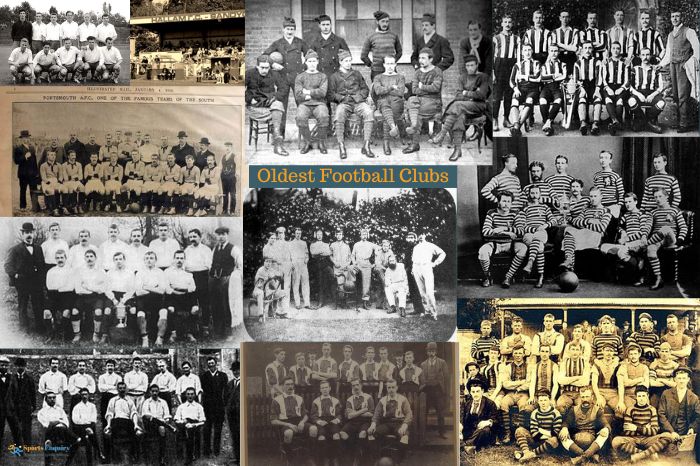What Does FC Mean in Soccer?

Soccer (or football, as it’s known in most countries) is by far the most popular sport globally, with billions of fans cheering on their favourite teams worldwide. Whether you’re watching the World Cup, English Premier League, La Liga, or any other soccer league, you’ve likely noticed two letters that almost always appear in team names – FC.
But what exactly does FC stand for in the context of soccer? Does it have some special meaning or soccer-related significance?
FC is an abbreviation for the words “Football Club”. The full official name of most soccer teams ends with the phrase Football Club, which then gets shortened to just FC as a shorthand.
Some hugely popular examples include:
- Manchester United Football Club (Manchester United FC)
- Liverpool Football Club (Liverpool FC)
- Chelsea Football Club (Chelsea FC)
- Wanderers Football Club (Wanderers FC)
So whenever you see those two letters FC after a soccer team’s name, you can tell they are formally known as a Football Club. It’s a traditional identity for soccer teams around the world.
In this blog, we’ll dive into the history of where this Football Club naming custom came from, why it is still used today, and what it signifies for soccer’s origins and local roots. Let’s kick off understanding the meaning of those two simple but special letters – FC!
Origin of the FC Tradition
The “Football Club” naming tradition has its roots in the early days of organized soccer in Britain during the late 1800s and early 1900s. In these pioneering times, soccer teams were first established by local churches, schools, factories, and other community groups as clubs for football players and supporters in their town or city.
For example, Liverpool FC was formed by John Houlding, the owner of the Anfield Stadium, in 1892. Manchester United FC was originally known as Newton Heath L&YR F.C., started by workers of the Lancashire and Yorkshire Railway in 1878.
These early football clubs helped grow the sport locally and eventually paved the way for today’s massive professional leagues. But even amidst soccer’s incredible global growth, teams worldwide have retained the classic Football Club phrase in their official names, paying homage to the local origins of the beautiful game.
Use Of FC In Soccer Team Names Today
Even as soccer has evolved into a multi-billion dollar global sport with huge professional leagues and elite players, the abbreviation FC is still widely used and recognized around the world.
While many soccer clubs today are massive corporate organizations and global brands, the FC in their names connects them back to their humble beginnings as local community teams.
For fans, the FC is a reminder of the local roots and origins of their favourite club, which was started by and for supporters in their city or town before growing into the powerhouse it is today. Barcelona FC, for example, maintains that local community identity, despite being one of the most famous and successful clubs globally.
So the FC keeps today’s mega soccer clubs grounded in their history as community organizations for football lovers. Using Football Clubs pays respect to the early local origins of teams, even amidst the commercialization and popularity of modern football. For teams and fans, FC represents continuity with the core identity of soccer/football as a community-driven sport.
Other Abbreviations Related to FC
While FC for Football Club is by far the most common, there are some other abbreviations you may occasionally come across in soccer teams’ official names.
Some examples include:
- AFC – Which stands for Association Football Club. For example, the Arsenal Football Club is sometimes referred to as the Arsenal AFC.
- SC – Standing for Soccer Club, like SC Freiburg in Germany.
- United FC – Meaning United Football Club, such as Newcastle United FC in England.
- SAFC – An abbreviation for Soccer Association Football Club that is used by some teams.
Additionally, some clubs in Latin America and Spain use other words entirely like Club, Athletic, or Sporting in their names rather than the classic Football Club.
But across most of the soccer world, FC remains the prevalent shorthand for Football Club and signifies the traditional identity of teams as community-based football clubs. The other abbreviations are seen from time to time, but FC is by far the most widely recognized and used.
Conclusion
While today’s biggest soccer clubs are global powerhouses, the abbreviation FC in their names signifies humble local beginnings. FC stands for Football Club, tracing back to early community-based teams formed by schools, churches, and factories in Britain. Though now international brands with billions of fans and dollars, FC connects modern titans like Manchester United and Barcelona to their origins as small clubs belonging to a town or city. The historic FC reminds us that soccer grew from local fans united by their love for the beautiful game. So the next time you hear a team’s FC name, remember the community roots that soccer was built upon, which endure through the globalized sport we enjoy today.
You May Also Like

I’m James Ritter, a sports enthusiast. I’ve played sports since school, and now I enjoy writing about them. My goal is to inspire aspiring athletes through stories of success and determination. I believe anyone can achieve greatness with the right guidance. I aim to make a positive impact on the sports community by sharing stories and insights, connecting my love for sports and writing. Join me on this journey of inspiration for all sports lovers.






